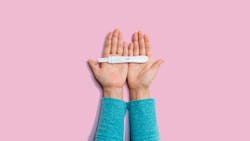A recent analysis published in Acta Obstetricia et Gynecologica Scandinavica found no association between women's caffeine consumption and pregnancy or live birth rate after fertility treatments, but women's alcohol consumption was associated with decreased pregnancy rate after treatments when weekly consumption was greater than 84 g (approximately 7 standard drinks).
Also, men's alcohol consumption was associated with decreased live birth rate after fertility treatments in women when weekly consumption was greater than 84 g.
The analysis included all relevant studies published before July 15, 2022. A total of 7 studies on caffeine consumption and 9 studies on alcohol consumption were included, with a total of 26,922 women and/or their spouse who underwent fertility treatment.
Compared with abstainers, the chance of achieving a pregnancy after fertility treatment decreased by 7% for women who consumed 84 g alcohol per week, and the chance of partners achieving a live birth decreased by 9% for men who consumed 84 g alcohol per week.

